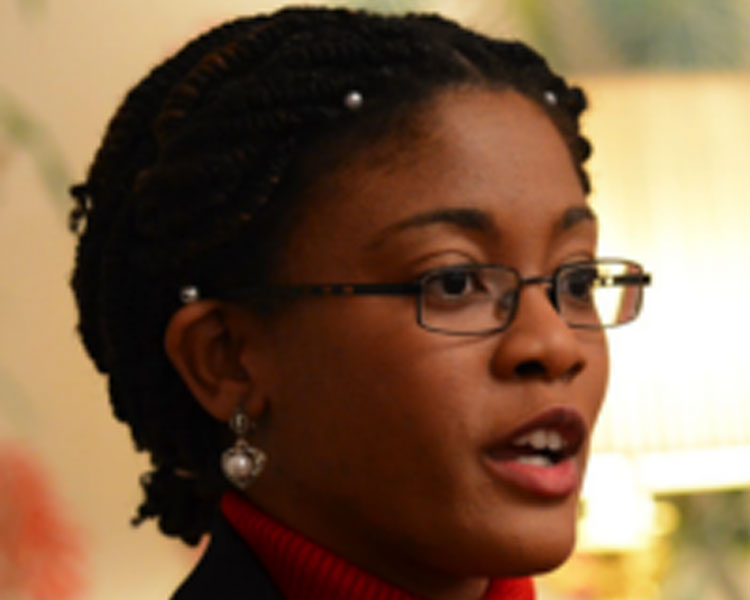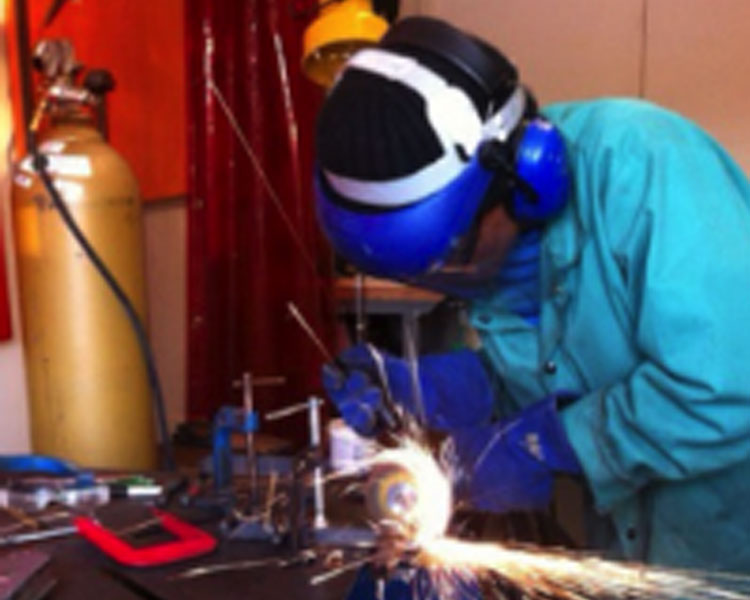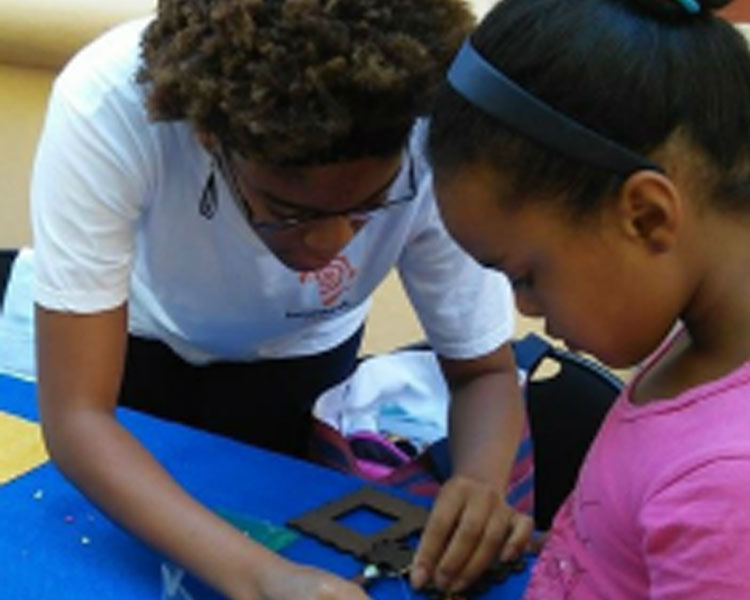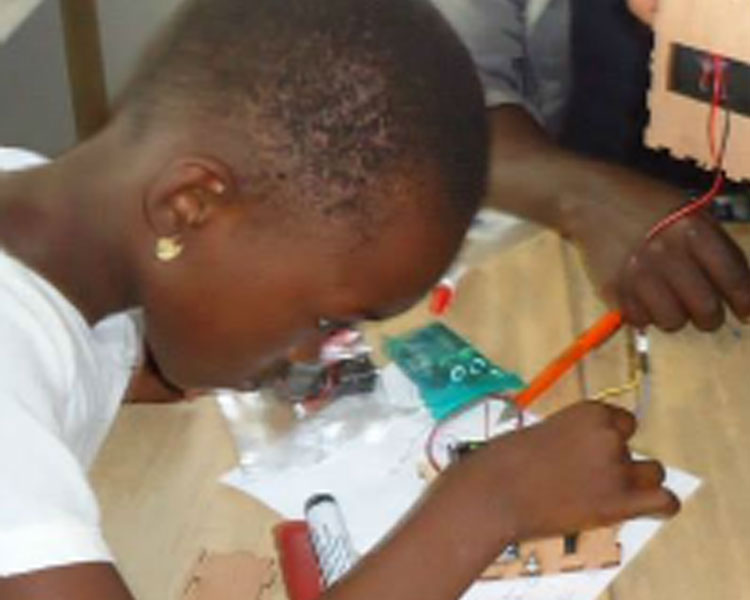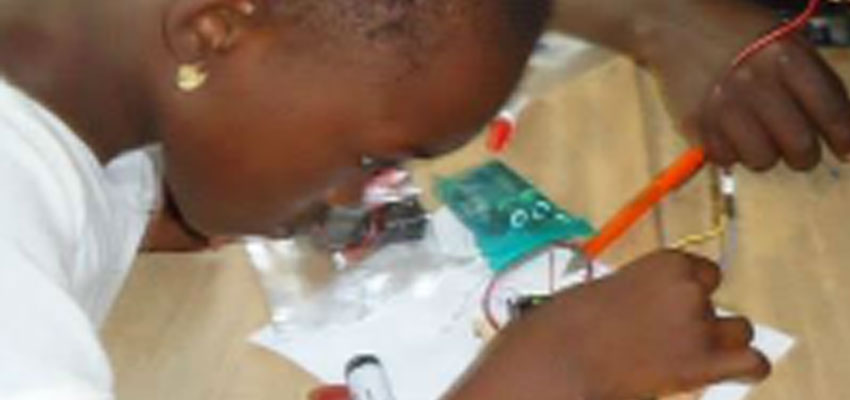
The following is one of a series of blogs by D-Lab alumni. Netia McCray was a Political Science major who graduated from MIT in 2014.
-----------------------------
1. What you did at D-Lab while your were a MIt undergraduate?
After attempting every semester since my freshman year to participate in a D-Lab course, in my senior year I was fortunate enough to win the lottery and participate in D-Lab's newest addition to their course offerings; Design for Scale.
In D-Lab: Design for Scale, I was able to develop a firm foundation in terms of the knowledge and skills necessary in order to design solutions for "the other 90 percent" of the planet. I worked with a team on a project titled Re-Design of Bicycle-Cart Hybrid for Mass-Manufacturing for a Lagos-based recycling company Wecyclers (the founder Bilikiss Adebiyi-Abiola is an alumna of the MIT Sloan School of Management and of the D-Lab Scale-Ups fellowship program).
2. What have you been doing since you left MIT?
After completing D-Lab's Design for Scale course in Fall 2013, I was inspired to develop a solution in order to assist youth in emerging markets in learning the basics of product design and development in order to develop hardware solutions to improve their lives and those in their communities. Based on my experience working with youth in Latin America and Sub-Saharan Africa, I wanted to develop a line of do-it-yourself (DIY) kits through my nonprofit, Mbadika, that would provide a youth a hands-on method of learning the basics of hardware.
During MIT’s January Independent Activities Period, I developed a prototype, a DIY Solar USB Charger kit, in order to introduce youth to electronics prototyping through the construction of a practical consumer product. After testing our initial prototype with youth in the Cambridge-Boston area, we wanted to focus on testing our idea with our target group; Sub-Saharan African youth.
In the following months, my team and I were able to fundraise through the MIT IDEAS Global Challenge, MIT $100K, and the Millennium Campus Network enough funds in order to further develop our initial prototype, test our kits on the ground, and develop key partnerships in South Africa. Therefore, before the ink could dry on my new diploma, I traveled to Southern Africa for three months in order to gather feedback from youth regarding our Solar USB Charger kits including at Maker Faire Africa in Johannesburg.
Based on the feedback we received from over 150 youth, we are now working with our local partners EduGreen and R-Labs, in order to further develop our Solar USB Charger Kit for local manufacturing and distribution in South Africa in 2016.
3. How did your D-Lab experiences influence what you're doing now and how you approach the work you're doing?
Before participating in "Design for Scale," I was already running a nonprofit, Mbadika, focused on fostering youth-driven innovation and entrepreneurship through hands-on workshops in Latin America and Sub-Saharan Africa. However, despite the success of Mbadika in terms of inspiring youth to explore careers as innovators and entrepreneurs via our workshops, I felt that our efforts were only reaching a small percentage of youth. Our method, even though successful on a very small scale, wasn't scalable and would be difficult to make sustainable.
Shortly after the class began, I presented a poster about Mbadika for a student poster session at D-Lab’s Scaling Development Ventures conference. At that time, I had only presented our DIY Solar USB Charger Kit to my classmates as a part of a IAP Startup Class. Despite having a close relationship with a few D-Lab staff members, I was hesitant to share my idea because I didn't want to be ridiculed for spending my time on a project that was too "idealistic" or "naïve." The feedback I received from SDV helped me gain the confidence, as well as support, to further develop the idea throughout the Spring and submit the project for on-campus and off-campus competitions.
Since freshman year, I've always admired D-Lab's focus on working hands-on with their "clients" (i.e. communities) in order to develop appropriate, sustainable solutions that address the needs of the client and can create an impact beyond the initial client. I knew that if I wanted Mbadika to not simply become another failed social initiative by a naive and idealistic undergradudate, we would have to change gears. Hence, my main motivation to participate in D-Lab was to learn how I could incorporate D-Lab's methods and knowledge in order to increase the impact of Mbadika. While in D-Lab, I quickly realized the secret formula wasn't a complicated method but simply ensuring that you keep your ear to the ground at all times and listen.
Once we started closely listening to our former students and partners, we realized that our clients in Sub-Saharan Africa didn't need workshops focused on becoming innovators and entrepreneurs but rather methods to teach basic product design and development to youth. Therefore, we re-structured Mbadika with a few key partners in order to focus on the development of solutions to assist youth in learning product design and development in Sub-Saharan Africa.
Now, we ensure that we gather feedback from our clients in order to ensure that we are designing not only to address their needs but for maximum impact. No matter whether its shipping prototypes for youth in Togo to assemble and send us their opinions or jumping on a Skype call to brainstorm with a hardware workshop coordinator in Kenya, we make sure to keep our ear to the ground. If you talk with our team and partners, you will realize the enormous influence D-Lab has had on our organization.
4. What's next for you?
At the moment, I'm focused on establishing Mbadika's international operations, especially in South Africa. For instance, we are launching our new workshop and micro-manufacturing center this upcoming Summer in Cape Town, South Africa. The center will provide youth a physical location to gain hands-on experience working with hardware and electronics as well as a location for Mbadika to locally manufacture its line of DIY kits.
In addition, we are working with our local partners and schools in order to develop a Design Competition in which youth can submit their ideas for the next Mbadika DIY kit in exchange for a monetary prize and the opportunity to participate in the process of transforming their idea into a manufactured consumer product. Last, but certainly not least, we are engaging in exciting new partnerships with the U.S. State Department and the AfriLabs Network in order to ensure that our impact is not limited to youth who participate in our workshops in Cape Town.
The past few months with Mbadika have been a blast and I'm excited to see what lies ahead.
